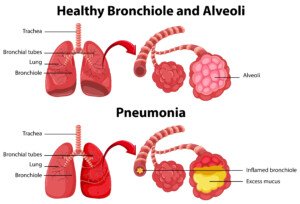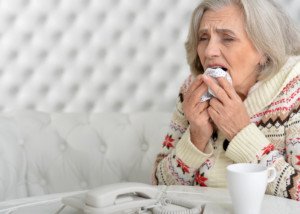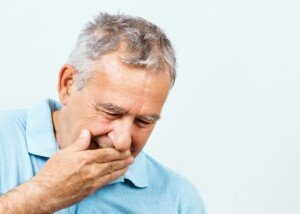
Is there a such thing as MILD pneumonia in an elderly person, and if so, is this any less of an urgent situation?
Ever wonder if it’s possible for an elderly person to experience a pneumonia that’s only mild?
“Of course it can, in folks who are generally healthy,” begins Susan L. Besser, MD, with Mercy Medical Center, Baltimore; Diplomate, American Board of Obesity Medicine and board certified by the American Board of Family Medicine.
“But in the frail elderly, even a cold can cause significant issues.”
Though pneumonia in an advanced-age patient doesn’t always produce serious symptoms, this doesn’t mean one should be any less vigilant with recovery.
Pneumonia in the elderly can produce what appears to be mild symptoms, as was the case with my mother, who at the time was over age 70.
Initially she appeared to just have a nagging cough. It would come on suddenly and she’d have a spell of hacking.
I tried to get her to describe the nature of this cough, but her feedback was not reliable, as she’s not someone who’s very tuned into her body or symptoms.
My mother’s cough sounded really bad and was producing phlegm, and I began suspecting pneumonia, something coming up from her lungs.
Even though my mother kept saying she felt fine, other than feeling tired or weak “from all the coughing,” I couldn’t dismiss pneumonia as a real possible trigger of the coughing.
And when my mother said she felt “fine,” save for being de-energized from the physical exertion of all the coughing, I had to wonder if she was able to make the distinction between feeling tired from hacking and feeling tired from general fatigue due to infection.
There were no other symptoms; no fever, shakes, chills or shortness of breath – pre-diagnosis.
The diagnosis at the ER was “a little” pneumonia.

The next day, my elderly but very mobile mother reported feeling weak.
Throughout the course of her recovery from pneumonia, once it was diagnosed and she was taking an antibiotic and albuterol puffs from an inhaler, the symptoms other than the coughing were that of weakness/fatigue, at least a few incidents of shortness of breath and one incident of minor shaking.
Otherwise, my mother was functional, though I, who was staying with my parents throughout this, wouldn’t let her do any housework beyond simple kitchen work. She took it very easy and slept a lot.
The shortness of breath could have also come from the antibiotic, and the shaking, though a possible symptom of pneumonia, was clearly indicated as a possible side effect by the albuterol inhaler guidelines.
All in all, my elderly mother’s bout with pneumonia presented a mild picture as far as symptoms, and perhaps that was because treatment began early.
A stubborn cough in the elderly, whether that person is a “young” elderly or a frail elderly, should never be brushed off.










































